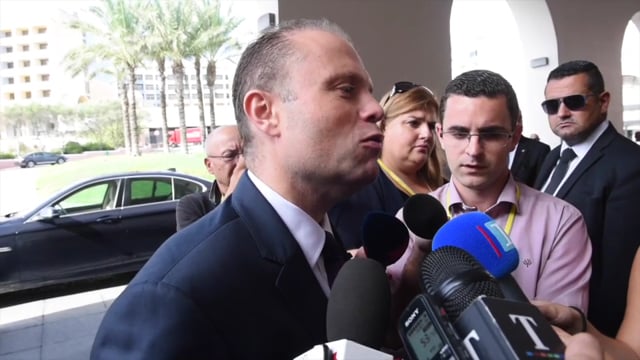[WATCH] Foreign business executives agree: Malta’s political transparency takes a knock
Survey amongst foreign direct investors finds that the stability and transparency of political, legal and regulatory environment is down by 15%


Malta’s stability and transparency of the political, legal and regulatory environment as an attractiveness parameter for foreign direct investment has seen a downward shift, EY’s Malta Attractiveness Survey 2016 – the future is today, has shown.
The survey was conducted amongst over 100 top executives of foreign-owned companies, revealing the investors’ concerns over Malta’s political transparency.
At 15%, the downward dip is not one to be ignored, Ernst & Young country managing partner Ronald Attard said.
“The stability of both our social climate and that of the political and legal environment has taken a knock,” Attard told a conference of politicians, civil servants and entrepreneurs at the Westin Dragonara.
“While in comparison with other countries Malta still scores highly on these benchmarks, this dip cannot be ignored. For an island with no natural resources and whose future depends only on its people, its geographic location and EU membership, this cannot be ignored.”
The survey comes after a year of spotlight on the Panama Papers revelations and the earlier investigations on the Old Mint Street property expropriation saga.
A ‘national coalition against corruption’ has become the Opposition leader’s battle cry and today, during the EY conference, Simon Busuttil reiterated the impact of corruption on businesses.
“Corruption is the big elephant in the room,” he said. “ Corruption is not pro-business and the conflict of interest of people in high public office undermines the level playing-field that investors need and expect.”
Busuttil said that Panama Papers scandal “may well have been swept under the carpet”, but it is still there.
Quoting the survey, which also found a 2% drop in the stability of social climate, Busuttil argued that all this “created a reputational risk that damages our future”.
“It makes us less attractive for investment; it makes our negotiating position weaker on tax harmonisation and it complicates our life at a crucial juncture where we are about to take on the Presidency of the European Union in January.
“My strong appeal to the Prime Minister is to sort this out before going into the EU Presidency.”
Prime Minister Joseph Muscat, taking questions from the media after his intervention, told MaltaToday that the government must be responsible enough “to be better”.
“No doubt that there was a strong campaign by the opposition which lasted over year and a zero-effect would have been impossible. I’m not saying that it’s a question of perception, but that it takes two to tango,” Muscat said.
The Prime Minister’s solution suggests that the way forward is for the government to clean up its act and “deliver more results”.
“Some decisions could have been taken better and we have responsibility to shoulder,” he reiterated.
Muscat found solace in the survey’s result that more companies were committeed to stay and invest in Malta: “The feel-good factor and confidence in the Maltese economy is basically at an all-time high.”






.png)




.png)











